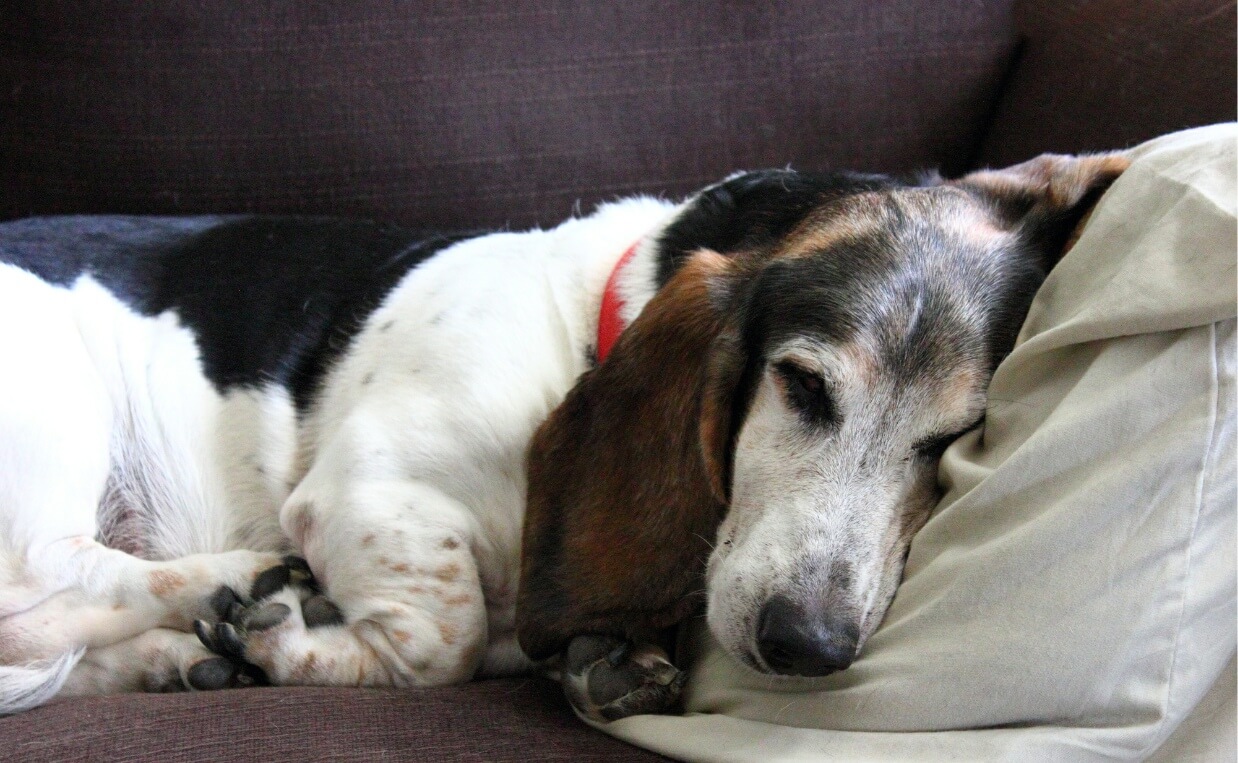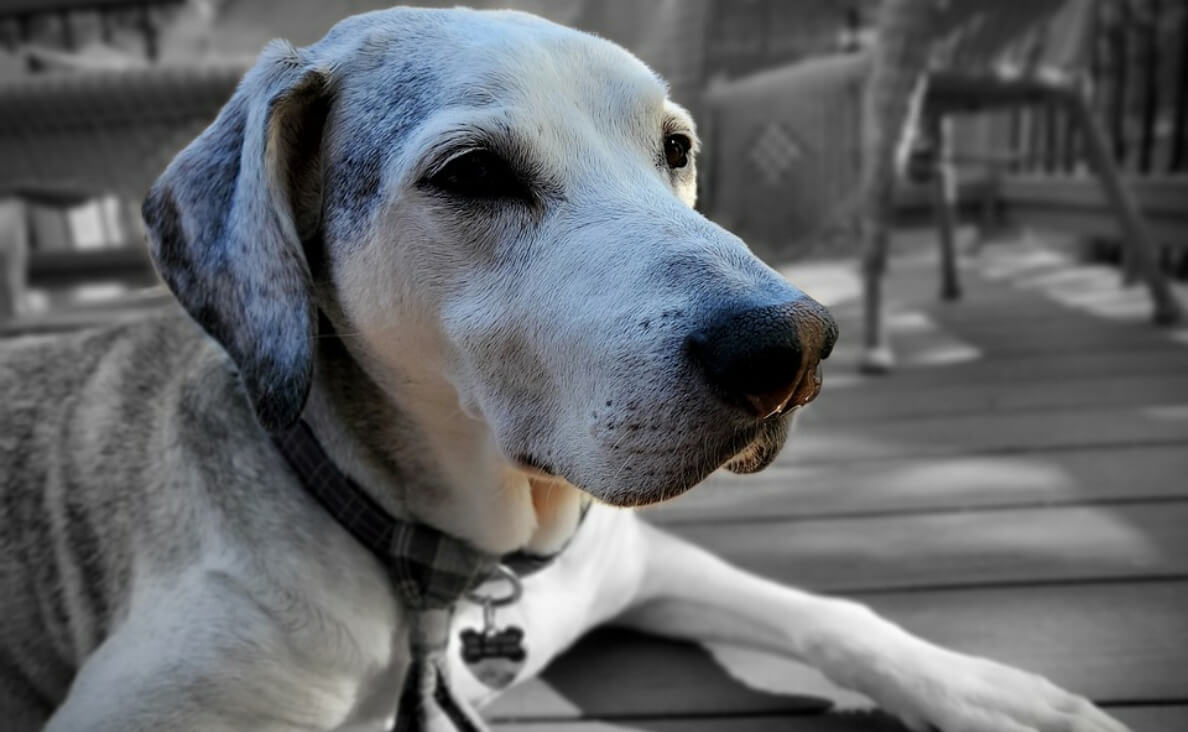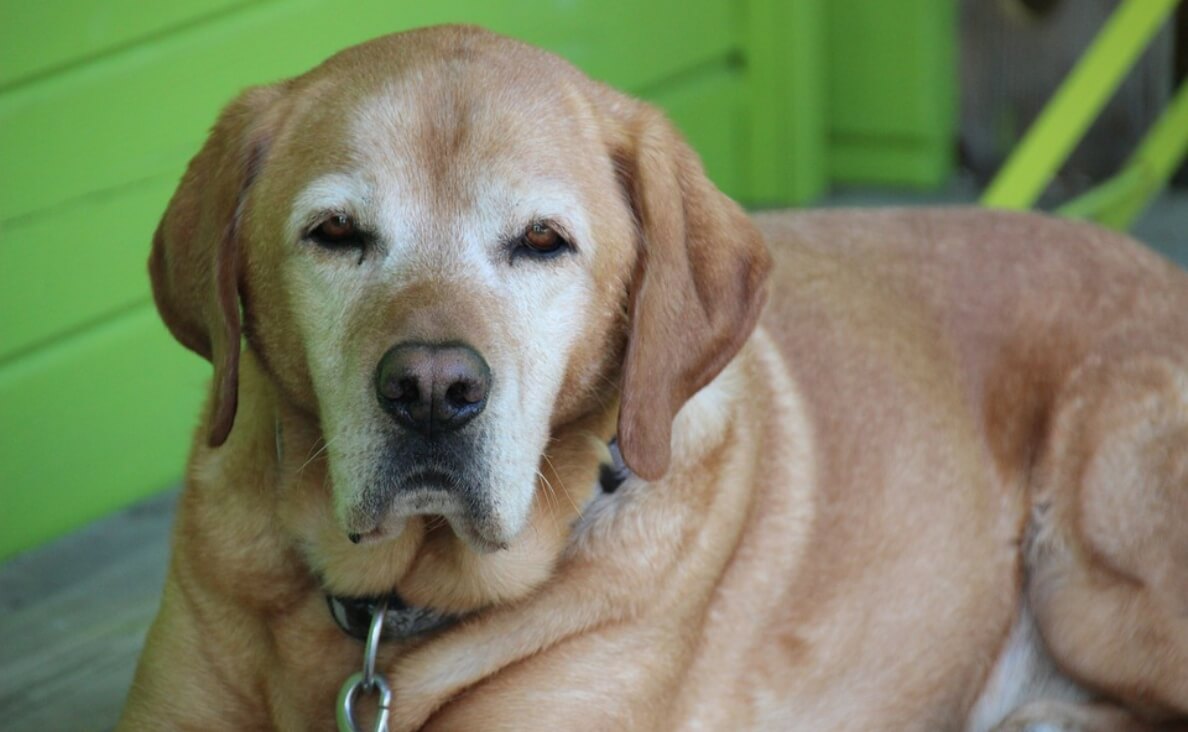
As your beloved pup begins to slow down and show gray around his or her muzzle, you may notice different behaviors and personality changes. Cognitive dysfunction is a common problem in senior dogs, affecting up to two-thirds in their golden years. However, cognitive dysfunction in aging dogs is not a normal part of aging and affected dogs require special care and consideration.
What is Cognitive Dysfunction in Aging Dogs?
Cognitive dysfunction, or dementia, is a neurological disorder. It affects the way the affected dog gathers and processes information about their environment, such as their perception, awareness, learning, memory, and ability to react.
Degenerative changes observed in the brains of dogs affected cognitive dysfunction:
- Brain shrinkage – It is normal for dogs to have cerebral cortex atrophy as they age, but it is more severe in dogs with dementia.
- Protein deposits – Protein plaques have been observed in the brains of affected dog. Treatments focused on reducing the plaque has proven successful.
- Oxidative damage – Increased free radicals in the brain may cause oxidative damage, which is known to cause cognitive decline in people and animals.
Sometimes people refer to cognitive dysfunction in aging dogs as Alzheimer’s disease, since the behaviors are similar. However, how much these changes contribute to cognitive decline in dogs is unknown; research is ongoing.

Signs of Cognitive Dysfunction in Aging Dogs
Behavior changes associated with canine cognitive dysfunction have been well-studied. Dog parents can use the acronym DISHAA.
-
Disorientation
Affected dogs often become disoriented, even in their normal environment. Dogs tend to get “stuck” in strange places – like behind the couch or between two pieces of furniture. They also seem to get “lost” in a familiar environment, like his or her own backyard. Dogs may not respond when called or forget about favorite routines, like a walk after dinner.
-
Interactions
The interactions your dog has with you and other family members (including other pets) may change. Your dog may no longer be interested in affection and may stop greeting you when you get home. Your dog may become withdrawn, grumpy.
-
Sleep-wake cycles
Dogs with dementia often sleep more during the day, only to have a hard time sleeping at night.
-
House soiling
Dogs with cognitive dysfunction seem to lose their understanding of needing to go outside to go to the bathroom. Incontinence is common; affected dogs don’t seem to be able to “hold it” for more than a few hours.
-
Activity level changes
Affected dogs aren’t interested in things they usually were. They often experience changes in their appetite, usually eating less.
-
Anxiety level changes
Anxiety is a common experience for dogs affected with cognitive dysfunction. Dogs typically become agitated or restless. Pacing and wandering are common and separation anxiety becomes common, even for dogs who felt secure before.
How is Cognitive Dysfunction Diagnosed in Dogs?
Cognitive dysfunction is a behavioral disorder and therefore there isn’t a specific test used to make a diagnosis. Usually, veterinarians will gather information about your dog’s behaviors and determine if a diagnosis of cognitive dysfunction fits. Some veterinarians may use the Cognitive Dysfunction Syndrome Evaluation Tool to help them make a diagnosis.
Before making a diagnosis, the veterinarian will rule out other medical conditions that could be causing the concerning behavior. For example, arthritis pain may prevent your dog from maintaining his or her previous activity level, or a urinary tract infection may cause house-soiling. An older dog may be suffering from vision or hearing loss, which could explain his or her disorientation, or lack of response to your voice.

How Can I Help My Dog with Cognitive Dysfunction?
If your dog is diagnosed with cognitive dysfunction, your veterinarian will work with you to develop a treatment plan, which may include:
-
Medications
Your veterinarian may prescribe anti-anxiety, antidepressants, and anti-inflammatory medications. These medications will help with anxiety, disorientation, restlessness and altered sleep-wake cycles.
-
Supplements
There are supplements found to support brain health and cognitive function in dogs, such as:
- Omega-3 fatty acids
- Medium-chain triglycerides (MCTs)
- L-carnitine
- Vitamins A, C and E
-
Environmental modifications
There are calming pheromones, available as a plug-in diffuser, spray or collar, to help ease your dog’s anxiety. A white noise machine may help calm a dog who is anxious at night.
-
Cognitive enrichment
Activities designed to mentally stimulate your dog may help keep your dog’s mind sharp. Examples include:
Learn more: 15 Ways to Enhance your Dog’s Learning Ability
Too often, dog parents assume cognitive dysfunction is a normal and expected part of aging. Cognitive dysfunction is common, but an abnormal medical condition. Many treatments are available to help improve your dog’s quality of life and help your dog’s golden years be some of his or her best.

If you have noticed behavioral changes in your aging dog, contact your veterinarian and schedule an appointment.

 Why It’s Crucial that You Start Grooming Your Puppy Early and Regularly
Why It’s Crucial that You Start Grooming Your Puppy Early and Regularly How to Choose the Best Dog Bed for Your Dog
How to Choose the Best Dog Bed for Your Dog Pancreatitis in Dogs – Symptoms, Causes and Treatment
Pancreatitis in Dogs – Symptoms, Causes and Treatment Dog Friendly Cleaning Solutions
Dog Friendly Cleaning Solutions How Safe is Spaying or Neutering for Your Dog?
How Safe is Spaying or Neutering for Your Dog?






Leave a Reply